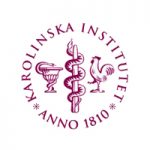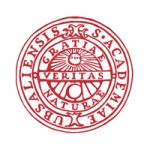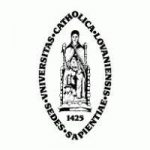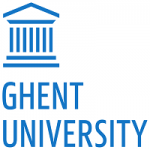项目介绍
Do you want to contribute to top quality medical research?
To be a doctoral student means to devote oneself to a research project under supervision of experienced researchers and following an individual study plan. For a doctoral degree, the equivalent of four years of full-time doctoral education is required.
The research group
We are looking for a collaborative student with a keen interest in exploring human neuroimmunology. We are a team of clinically oriented researchers focusing on the immunology underpinning autoimmune encephalitis. The etiology of this group of disorders is only just starting to be unraveled. Furthermore, the immune system of the human brain has been comparatively little studied. Answering both fundamental and clinical questions in this realm is the focus of the Theorell team. You will find our team and the wider Mjösberg group an optimal place to grow and drive outstandingly important research with both short- and long-term clinical impact.
The doctoral student project and the duties of the doctoral student
You will get a pioneering role in the team, leading our forays into the immune system of the healthy brain. You will also work in close collaboration with both current post-docs in the group, exploring the boundary between clinical psychiatry and neurology, as well as in studying immune cell-cell interactions that are hypothesized to underpin autoimmune encephalitis development. The main part of the project will concern basic neuro-immunological interactions, but diagnostic/epidemiological research will also take up a smaller portion. You will work primarily with human samples, but cell line work will also be an essential component of the project. Given the close collaboration with clinical colleagues, you will be expected to interact with nurses and helping nurses on a regular basis. For this reason, basic skills in Swedish will be a considerable advantage. Methodologically, you will use a broad range of techniques, including e.g. single-cell RNA sequencing, spectral flow cytometry, transfections, transductions and transformations of cells in overexpression and gene editing assays as well as confocal microscopy. You will actively contribute to all parts of the scientific process including phrasing scientific hypotheses, designing and conducting laboratory experiments, bioinformatic analysis of generated data, presentation of results and manuscript writing. Therefore, previous experience and interest in both laboratory work and bioinformatics will be a requirement to thrive in this project.
In essence, we are looking for a highly motivated candidate with an interest in translational and basic neuroimmunology who has a desire to continuously expand their methodological and scientific horizons.
What do we offer?
A creative and inspiring environment full of expertise and curiosity. Karolinska Institutet is one of the world’s leading medical universities. Our vision is to pursue the development of knowledge about life and to promote a better health for all. At Karolinska Institutet, we conduct successful medical research and hold the largest range of medical education in Sweden. As a doctoral student you are offered an individual research project, a well-educated supervisor, a vast range of elective courses and the opportunity to work in a leading research group. Karolinska Institutet collaborates with prominent universities from all around the world, which ensures opportunities for international exchanges. You will be employed on a doctoral studentship which means that you receive a contractual salary. Employees also have access to our modern gym for free and receive reimbursements for medical care.
Eligibility requirements for doctoral education
In order to participate in the selection for a doctoral position, you must meet the following general (A) and specific (B) eligibility requirements at latest by the application deadline.
It is your responsibility to certify eligibility by following the instructions on the web page Entry requirements (eligibility) for doctoral education.
A) General eligibility requirementYou meet the general eligibility requirement for doctoral/third-cycle/PhD education if you:
- have been awarded a second-cycle/advanced/master qualification (i.e. master degree), or
- have satisfied the requirements for courses comprising at least 240 credits of which at least 60 credits were awarded in the advanced/second-cycle/master level, or
- have acquired substantially equivalent knowledge in some other way in Sweden or abroad.*
Follow the instructions on the web page Entry requirements (eligibility) for doctoral education.
*If you claim equivalent knowledge, follow the instructions on the web page Assessing equivalent knowledge for general eligibility for doctoral education.
B) Specific eligibility requirement
You meet the specific eligibility requirement for doctoral/third-cycle/PhD education if you:
– Show proficiency in English equivalent to the course English B/English 6 at Swedish upper secondary school.
Follow the instructions on the web page English language requirements for doctoral education.
Verification of your documents Karolinska Institutet checks the authenticity of your documents. Karolinska Institutet reserves the right to revoke admission if supporting documents are discovered to be fraudulent. Submission of false documents is a violation of Swedish law and is considered grounds for legal action.
(A) and (B) can only be certified by the documentation requirement for doctoral education.
Skills and personal qualities
Necessary
- A master or equivalent within medicine, molecular biology, biomedicine, genomics, biochemistry or pharmacy or associated fields.
- Excellent communication skills.*
- An ability to be a teamplayer, able to cooperate with a wide range of individuals in both laboratory and clinical settings.
- Knowing your own limits of knowledge and energy and being able communicating these to the team leader and your peers.*
- Basic knowledge of immunology (most common cell types, their interactions and the overall purposes of the overarching arms of the immune system (innate, adaptive, cellular, humoral)).*
Desirable
- Basic communication skills in Swedish *
- Basic knowledge of clinical neuroimmunology.*
- Basic experimental experience of single-cell RNA sequencing, multi-colour flow cytometry, confocal microscopy and/or cell transfections. Provide concrete examples of your experience with these techniques, i.e. not only “has experience of”, but rather how and when these techniques have been employed.
- Basic bioinformatic insights, specifically coding experience in R. This should be substantiated with either having taken courses, such as “HarvardX: Data Science: R Basics” or similar, or examples of published analyses.*
- Enjoying presenting for peers
* This might be tested during interview.
Terms and conditions
The doctoral student will be employed on a doctoral studentship maximum 4 years full-time.
联系方式
电话: 08-524 800 00相关项目推荐
KD博士实时收录全球顶尖院校的博士项目,总有一个项目等着你!






